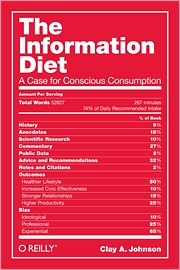We live in the information age. It is worth entering the Internet, as news from all over the world literally falls out on us. And first of all, we pay attention to tragedies, death, cataclysms. At some point, it begins to seem that everything in the world is bad and there is no solution. But maybe it is in our power to filter the information? Choose trusted sources, quality publications? Do not get hung up on problems, but look for solutions in articles, programs and books?
It seems that the news will soon lead to a nervous breakdown? “The problem is not in the news itself, but in the way the media presents it — focusing on the tragedies and suffering of people, since it is easier to make money on it. We consume information that is harmful to mental health and can trigger anxiety and depression. But it is in our power to change our “information diet,” says British psychologist Jody Jackson, who studies the impact of news on the psyche. Here’s how we can do it.
1. Become a responsible consumer of information
Many companies have been forced to change their practices under pressure from responsible consumers. The news media are no different from them. To generate income, they need an audience. And we, consumers of information, can responsibly choose what we will watch. To do this, it is essential for us to be informed.
Nelson Mandela said that education is the most powerful weapon with which we can change the world. By knowing the benefits and harms that news can bring, we can become responsible consumers of information. In our media diet, we will include only those media that speak primarily not about problems, but about how to solve them. This will benefit our mental well-being.
2. Prioritize quality journalism
The conflict between quality and profitable journalism is a problem not only for the media, but also for us, viewers and readers. We get to know society largely through the news media, you could even say that they partly shape it.
“When we get bad information, we make bad decisions. And we cannot relieve ourselves of responsibility, explaining that our actions do not affect anything. Influence — each person is able to change something. Let’s work together to make it profitable for the media to print and show quality news,” Jody Jackson urges.
Traditional leaders in the media industry fear change and experimentation because it threatens their income and contradicts their own vision. But they can be persuaded by a visual demonstration.
3. Go beyond the «information bubble»
Initially, news was not a form of entertainment, it existed to enlighten and inform us, helping us to learn more about the world beyond personal experience. Imagine if institutions and schools begin to act on the principle “if we give students exactly what they want, they will definitely come back to us”?
No, we are well aware that schools care about the long term, and not the immediate satisfaction of the desires of students, and the same should be required from the news. News should not be a form of entertainment, and we, viewers and readers, should be more demanding.
4. Be willing to pay for content
We won’t have a free and independent media if we don’t pay for quality content. If the news media have to subsist on advertising revenue, the demands of advertisers will always take precedence over the needs of viewers and readers. If we want them to become truly independent, then we must be ready to support them — subscribe to print or online publications, or simply provide voluntary material assistance to editorial offices that value quality journalism.
5. Go beyond the news
“A person who reads nothing is better educated than one who reads nothing but newspapers,” said Thomas Jefferson. One can agree with him. We cannot rely on the news media as the only source of information. In today’s world, there are many alternatives, says Jody Jackson.
Art works help us develop emotionally, learn understanding and compassion. Non-fiction provides us with solid knowledge backed by scientific research and helps us to understand the world deeper. Documentaries allow you to look at a particular problem in detail.
Podcasts also help to learn something new. For example, TED lectures give each of us the opportunity to hear the most prominent thinkers of our time. Quality information allows us to make informed and thoughtful decisions.
6. Choose news media that offer solutions
No matter how we relate to the news, it still affects our ideas about the world, ourselves and others. That’s why it’s so important to know how the news affects our mental health and to consciously choose what we want to watch and read. By including in the information diet materials not only about problems, but also about their solutions, we gradually begin to be inspired by someone else’s example.
By watching how others manage to overcome various obstacles (personal, local, national or global), we open up new opportunities for ourselves. It instills hope and optimism, gives strength — a kind of «emotional fuel» that helps to unlock our potential.
In order to change the world for the better, we must not ignore problems, but get the right information needed to solve them in a timely manner. In today’s world, there is such a rich choice of sources of information that we do not have to wait until the media industry finally begins to change. We ourselves can change a lot.
By maintaining a balanced diet of information that keeps us up to date with current problems and possible solutions, we will realize that the world is full of amazing people doing amazing things. It depends on us whether we will seek them, learn from them, be inspired by their example. Their stories can show us how we can change for the better not only the media industry, but the world as a whole.










